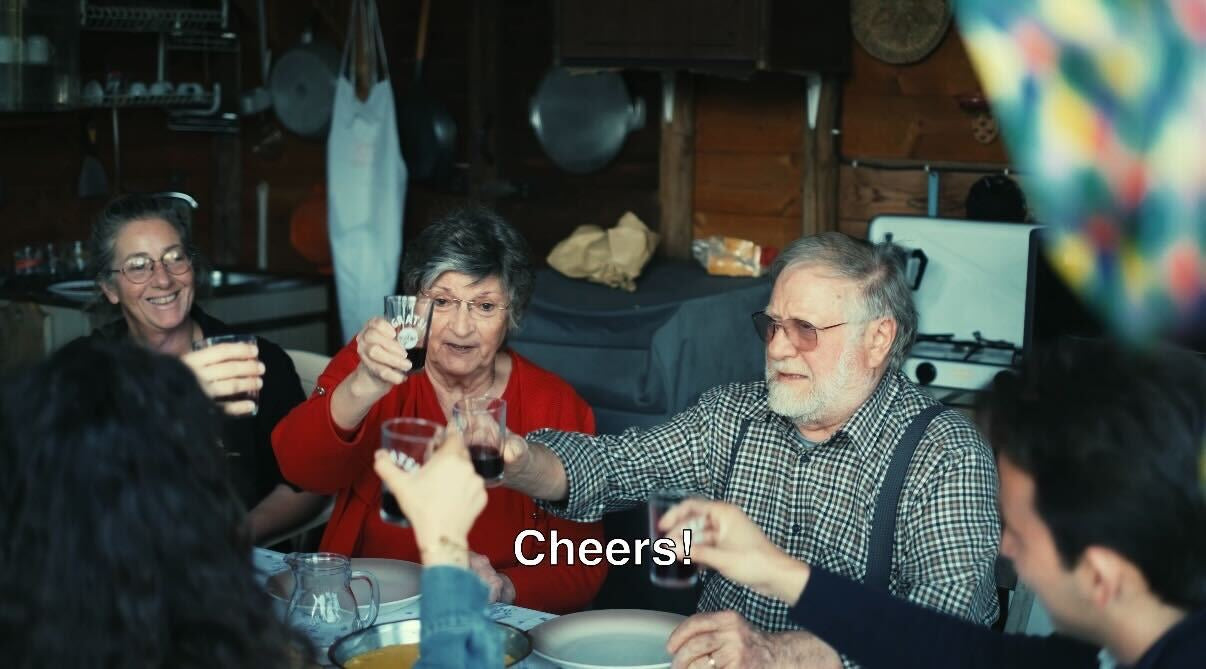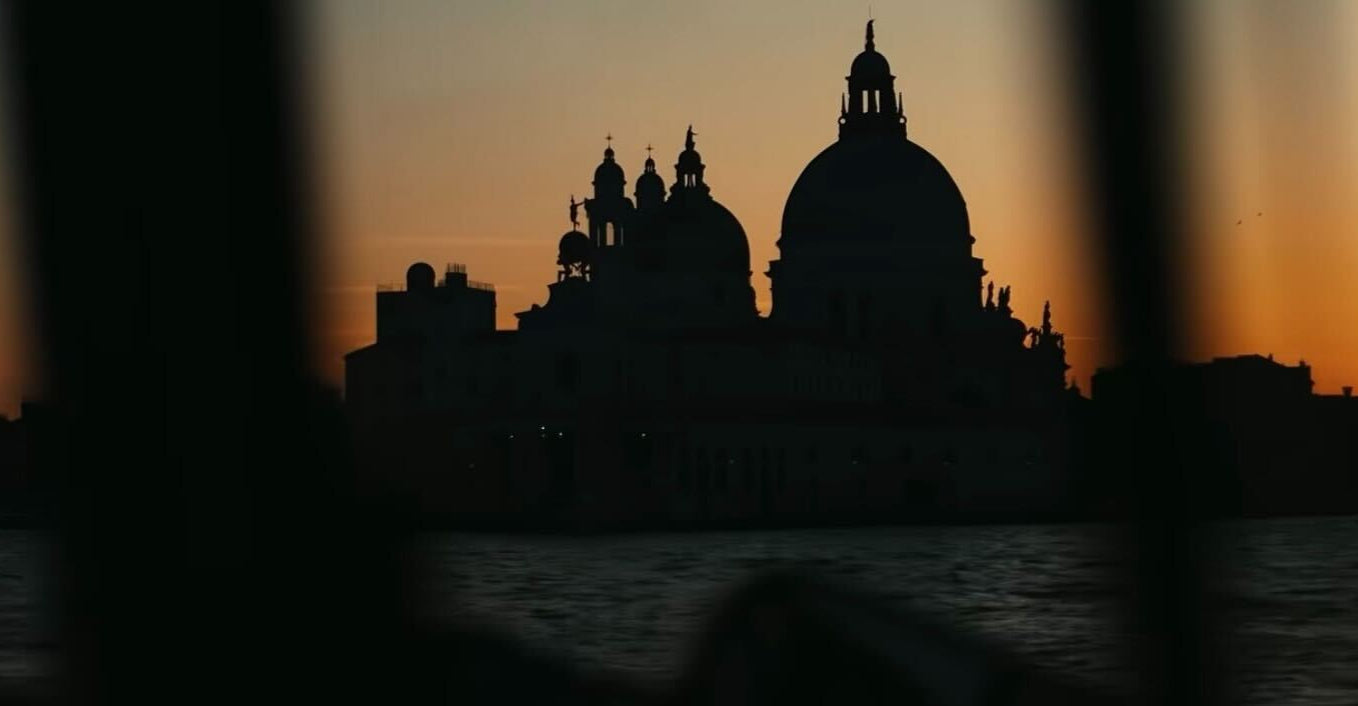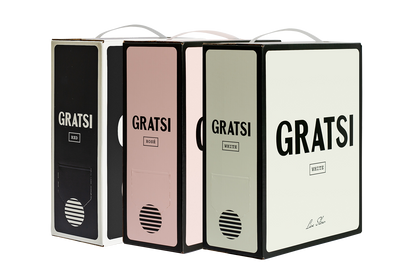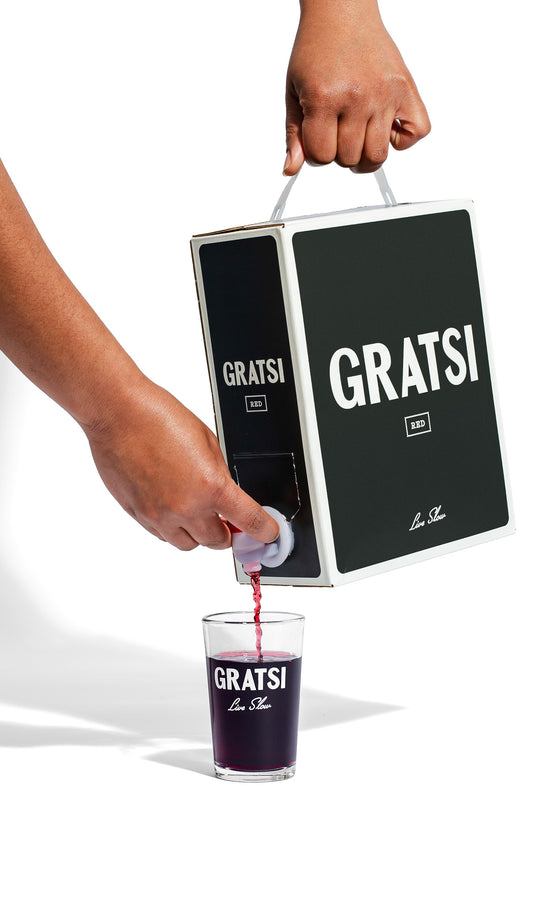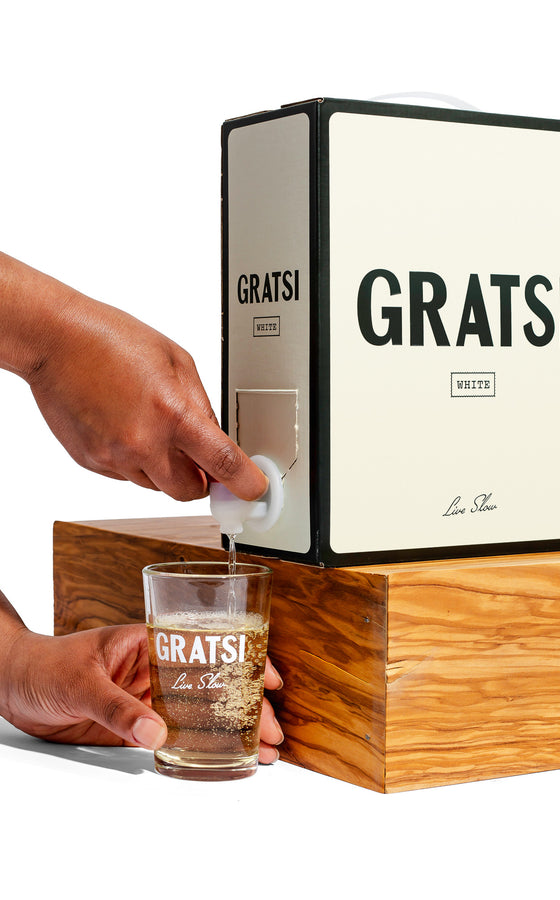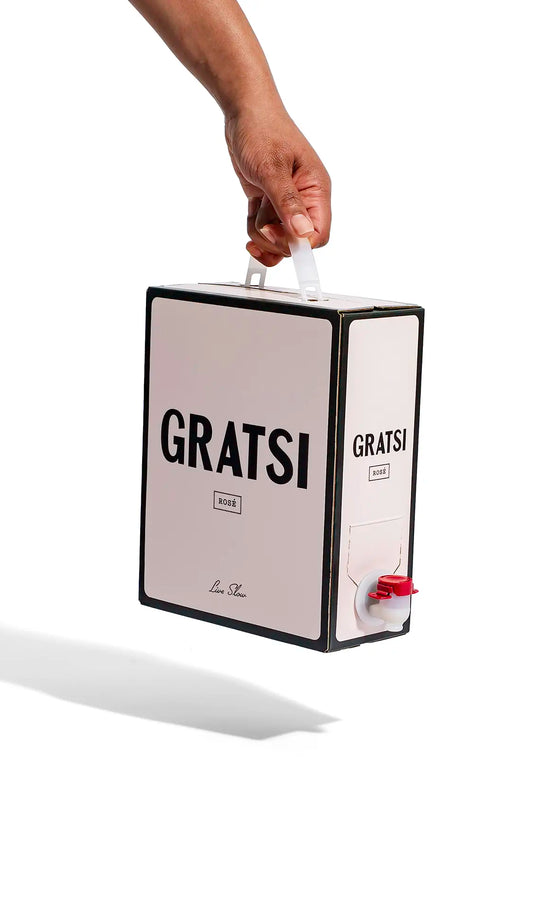From Venice to the Heart of Friuli: A Day with Nonna Santina and Nonno Giuliano
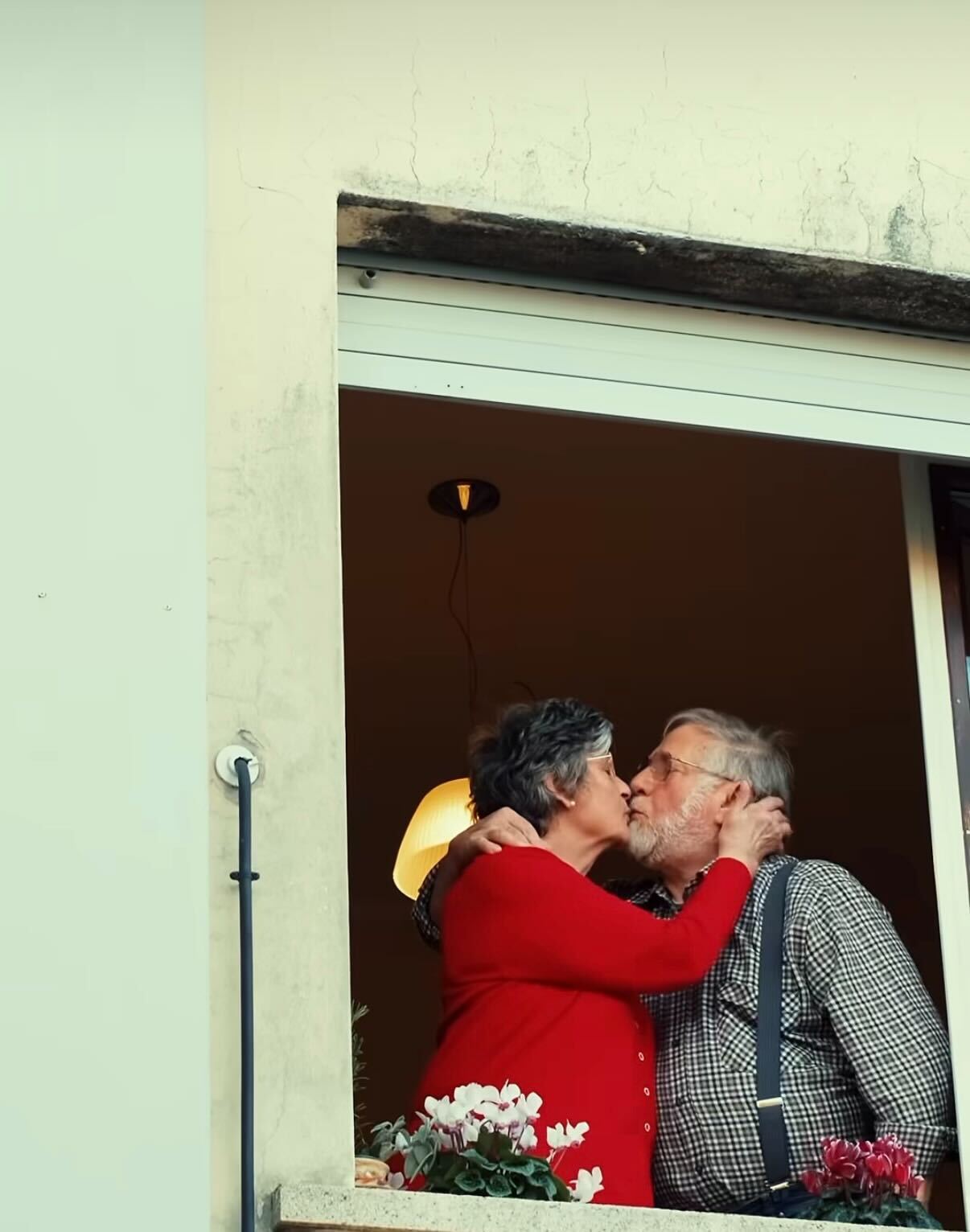
NONNA WISDOM EPISODE 6
From Venice to the Heart of Friuli: A Day with Nonna Santina and Nonno Giuliano
By Gianina Rose
May 21, 2025
It’s the first day of March, and Venice wakes up bathed in golden reflections on the water. Gondolas glide slowly through the canals, and the salty scent of the lagoon follows us as we walk. Piazza San Marco is still peaceful.
We wander through narrow streets and small bridges, breathing in the magic of a city suspended between sky and sea a perfect prelude to what will be a very special episode of Nonna Wisdom.
The next day, in a vintage white Fiat 500, we leave the lagoon behind and head to Pasiano del Friuli, a small town in the Friuli Venezia Giulia region. There, Nonna Santina and Nonno Giuliano are waiting for us. I bring a small bouquet of flowers as a simple gesture of thanks. We are greeted by Lia, the family dog, in the well-kept front garden of a two-story house filled with history.
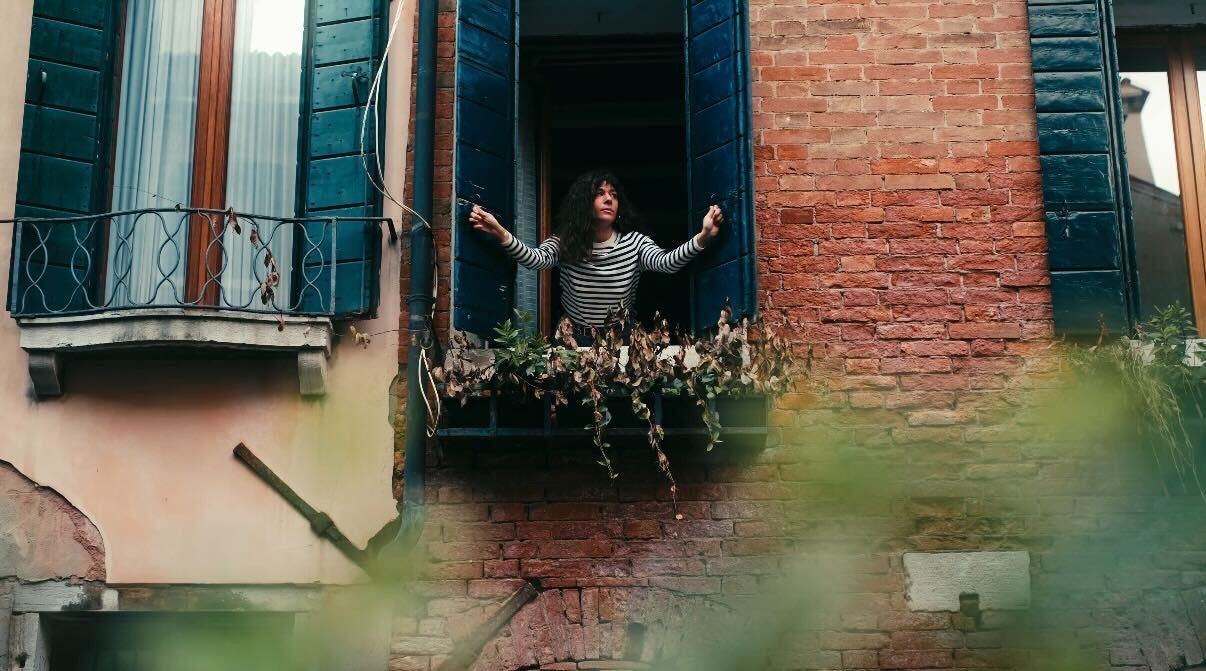
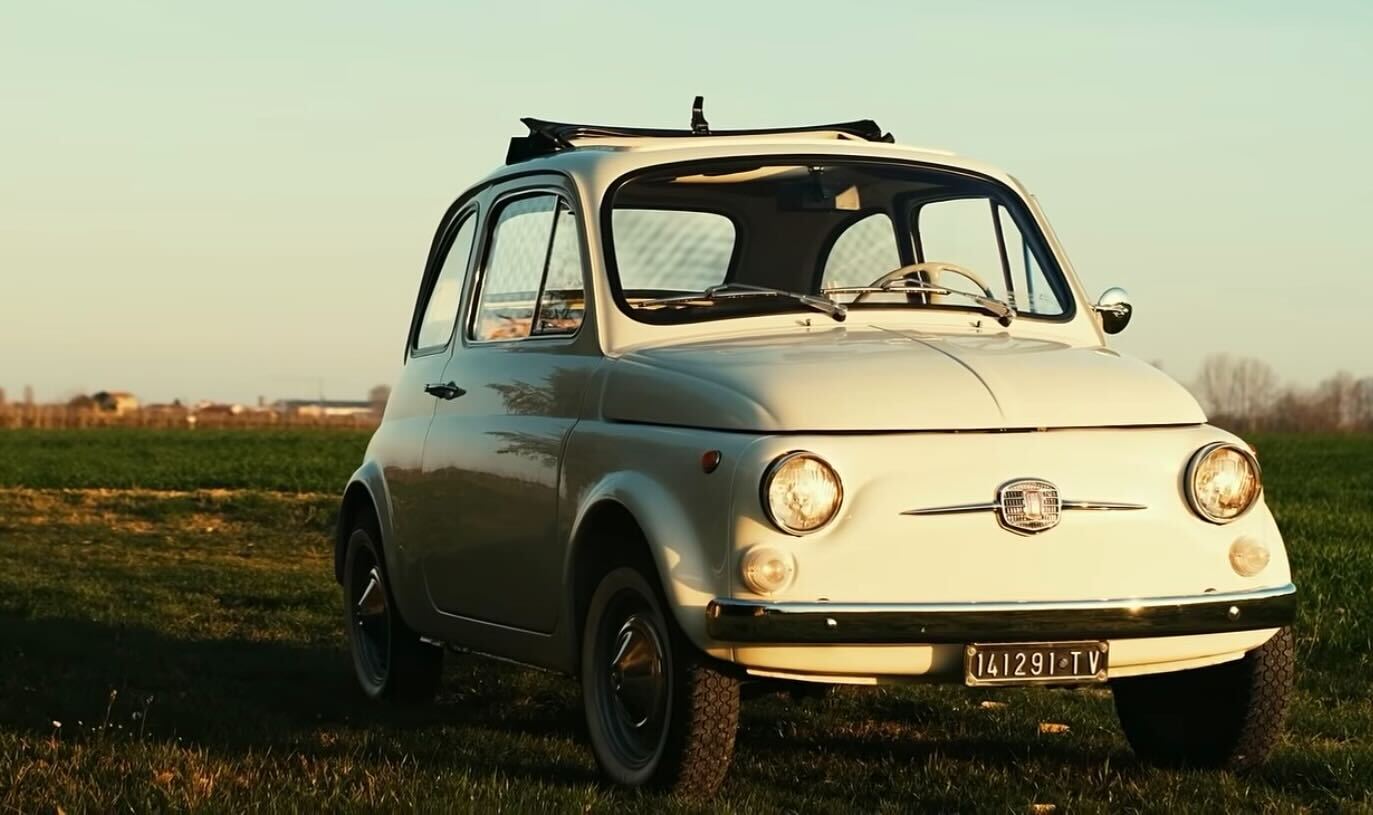
We head upstairs to the kitchen a bright space decorated with photos of grandchildren and paintings that tell the story of a full life. This is where the magic begins. It’s Nonno Giuliano who takes the lead at the stove, with Nonna Santina at his side.
They are preparing “Baccalà with Polenta”, a traditional dish from Friuli, passed down through generations and preserved in a cherished cookbook: “Cara vecchia cucina azzanese” - “Dear Old Azzano Cuisine”, a living tribute to the knowledge of grandmothers. The recipe opens with a bit of folk wisdom:
“To be good, baccalà must be beaten by a madman and seasoned by a blind man.”
A colorful way of saying that this dish requires passion and generosity—no need to overthink it.
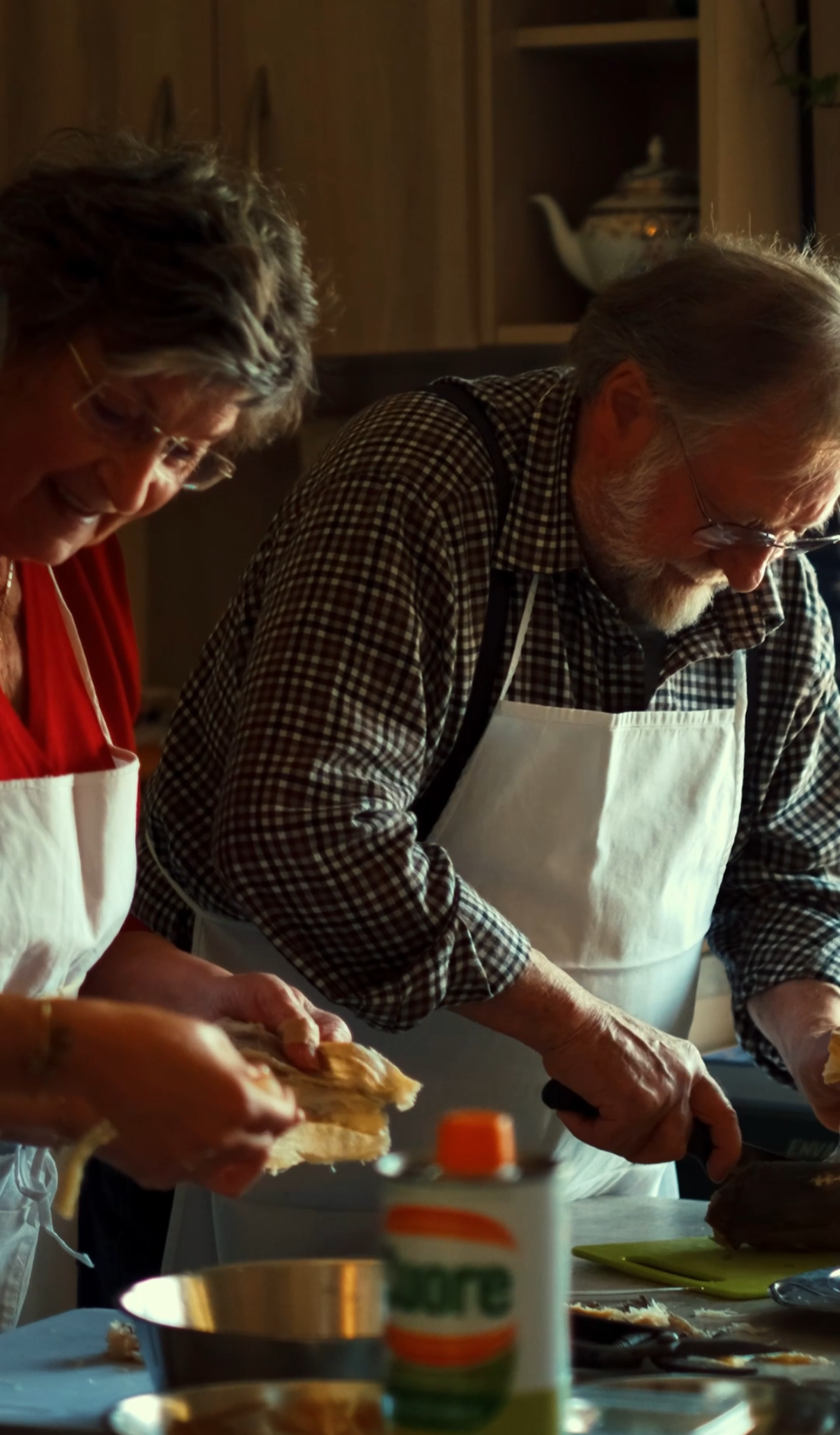
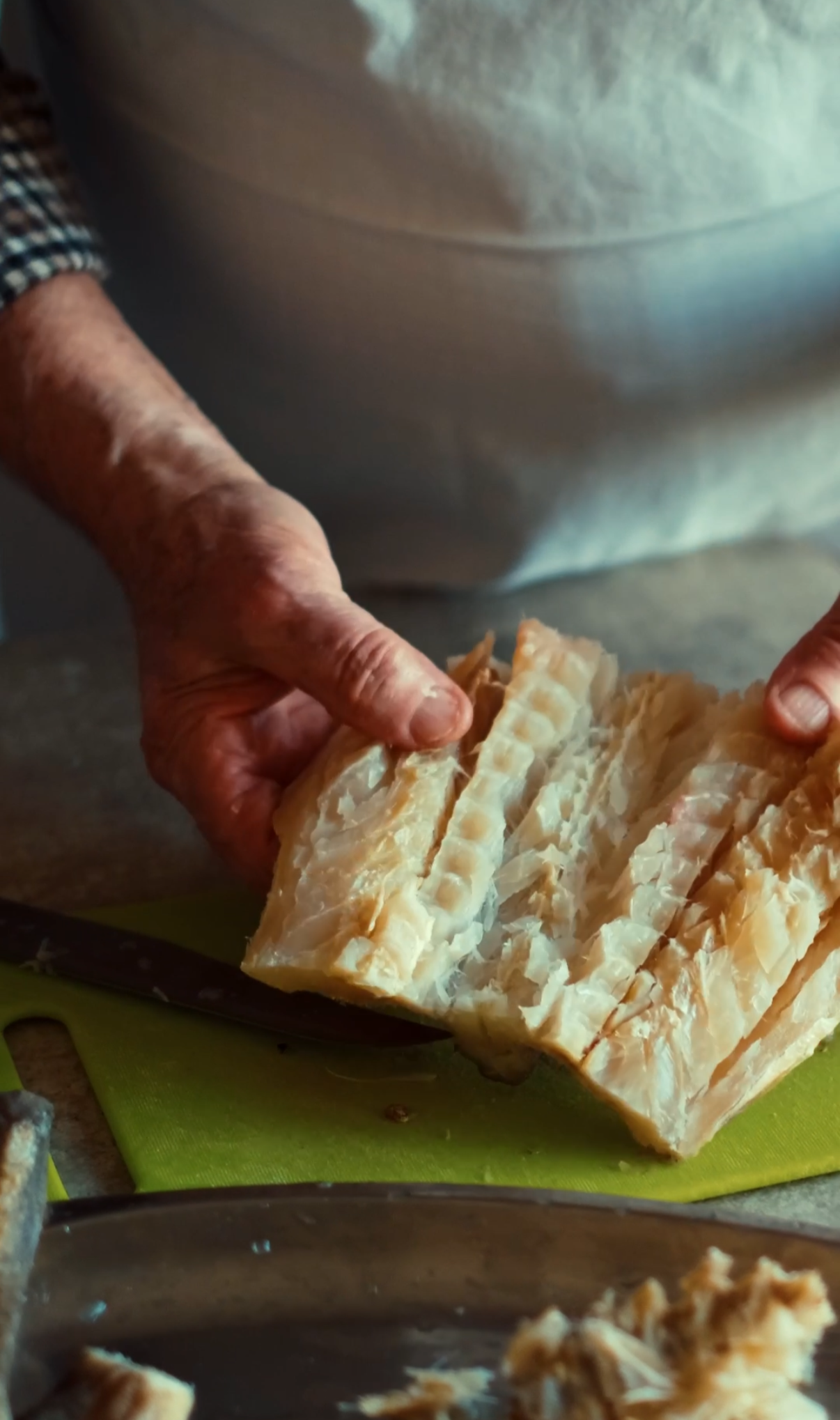
As Nonno washes the baccalà, he tells us how this dish came to Italy brought by travelers, trade, and the need to preserve fish during long winters. His hands move with confidence, and his words flow like a river: stories from his youth, family memories, emotions.
The three of us Nonna Santina, Nonno Giuliano, and I sit around the table to begin breaking the baccalà into small pieces and removing every last bone with care. And here begins one of the best stories of this episode: their love.
“It all started with a bet,” says Nonno Giuliano with a mischievous smile. One evening at a dance hall, his cousin challenged him to find a girl more beautiful than his own date. Giuliano walked in and immediately saw Santina. At that moment, he just knew. “Even without the bet, I would’ve noticed her right away,” he says. Fifty-seven years have passed since that day. And in their eyes, there’s still the same tender look of two people who have lived a life together, through laughter, hardship, and dancing.
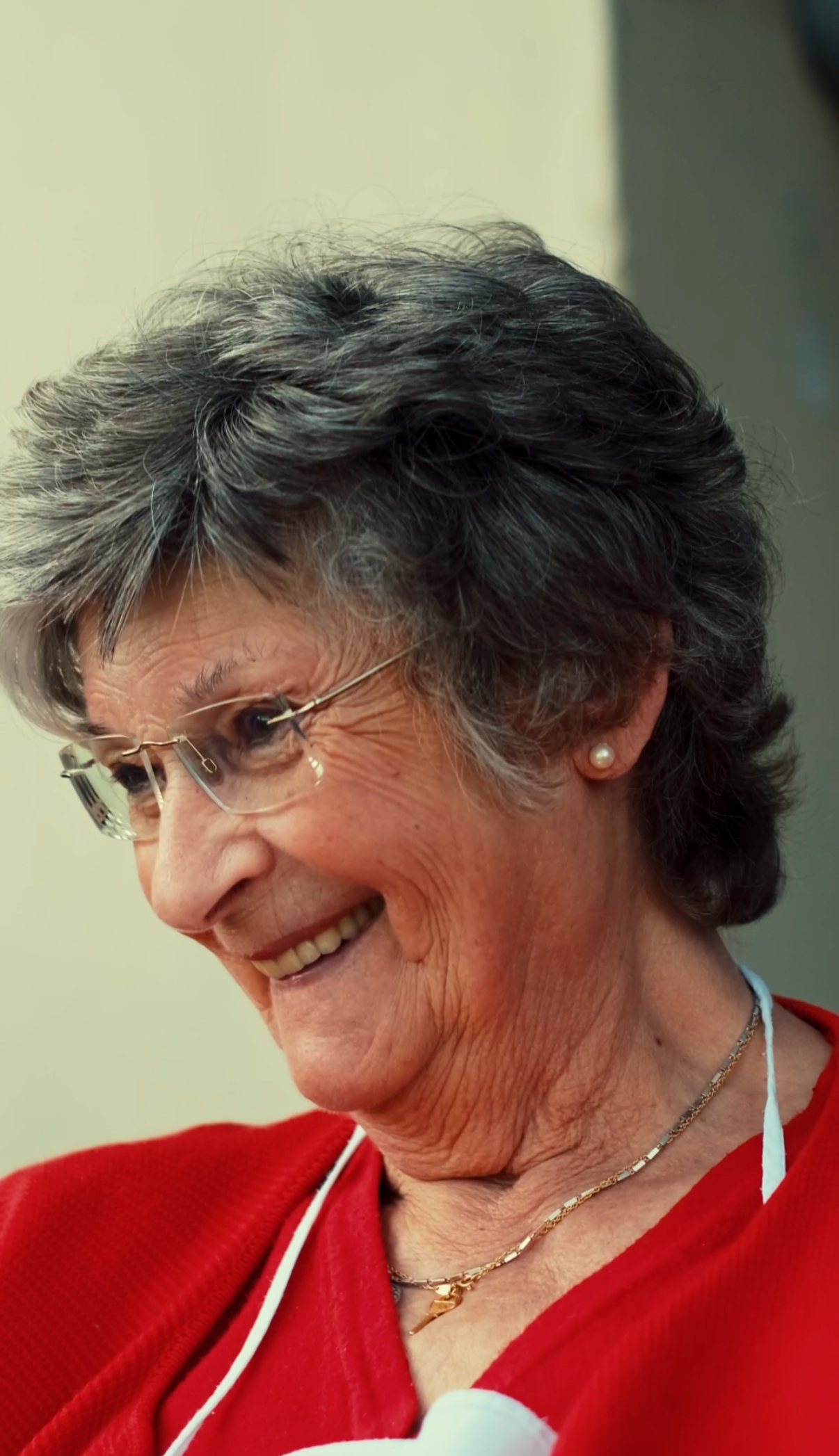

Here’s how to make the dish, as written in the book:
Baccalà with Anchovies and Polenta – A Family Recipe
Ingredients:
- 2.2 pounds salted cod (baccalà)
- 3 cloves garlic
- Fresh parsley, to taste
- Extra virgin olive oil, to taste
- 3 cups (24 fl oz) tomato purée
- 4–5 salt-cured anchovies, rinsed and deboned
- Black pepper, to taste
- A pinch of cinnamon
Using a wooden mallet, pound the baccalà (these days it’s usually pre-pounded when purchased). Soak it in water for 24 hours, changing the water occasionally. Then rinse, remove the scales and bones, and cut it into small pieces. Place it in a pot with olive oil, garlic, parsley, the rinsed and deboned anchovies (crumbled), black pepper, cinnamon, and the diluted tomato purée.
Cook over low heat for several hours, adding a little water from time to time and making sure it doesn’t stick to the pot.
Of course, serve it with polenta.
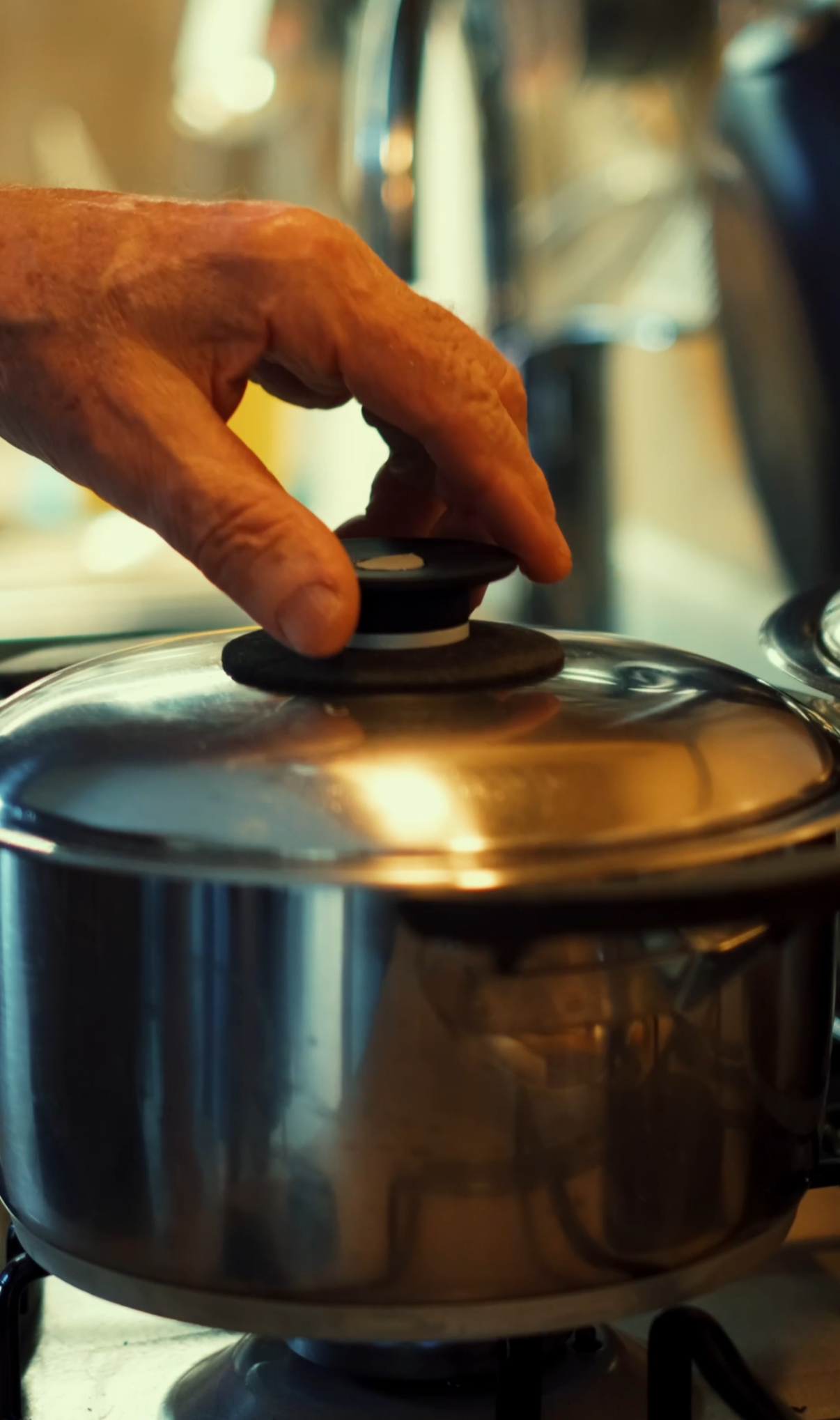

As the baccalà slowly simmers in the sauce, Giuliano invites me to visit his “personal temple”: the music room. Among a drum set, guitar, and yellowed sheet music, I discover his second passion. For fifty years, he was the voice and guitarist of I Caimani, a local band that made generations dance. He plays us a few Italian classics and an original composition: Amico Sole. Listening to him is a privilege. There’s a special light in people who do what they love it shines through him.
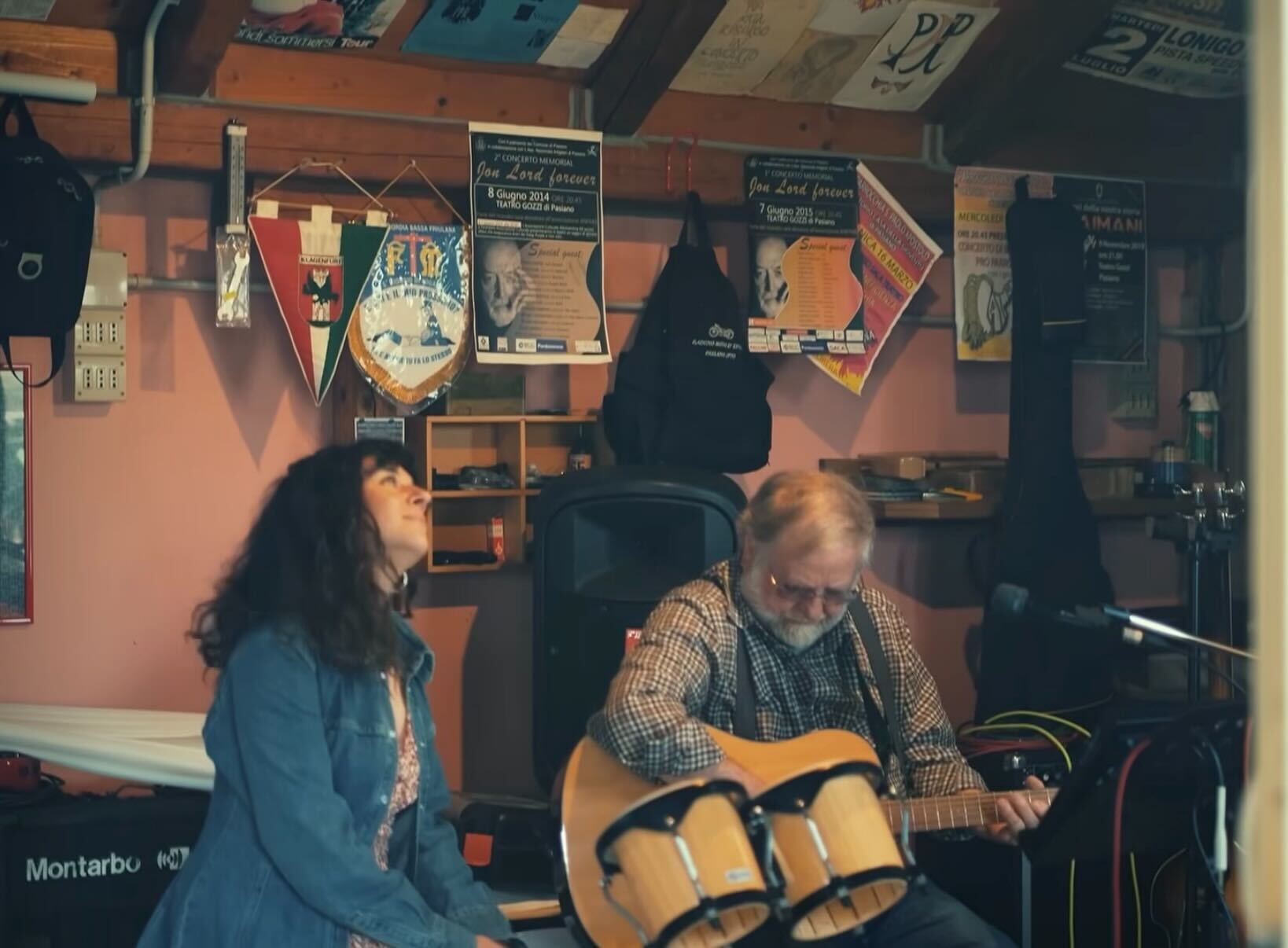
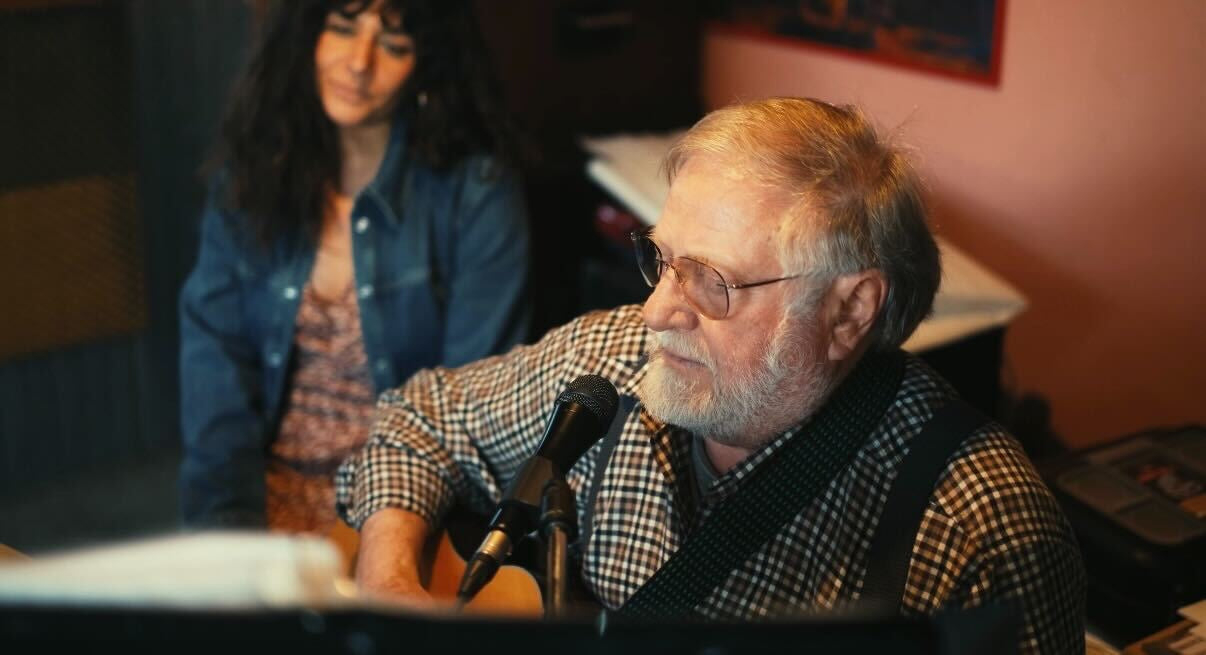
Back in the kitchen, it’s time to prepare the polenta, which will accompany our baccalà. Nonna Santina stays nearby with her gentle smile, ready to offer advice.
Ingredients for Polenta:
- 1.1 pounds cornmeal
- 10 ½ cups (2.6 quarts) water
- Salt, to taste
Instructions:
Bring the water to a boil with a pinch of salt. Slowly pour in the cornmeal while whisking to avoid lumps. Once combined, cover and cook over low heat for about 45 minutes, stirring occasionally.
When everything is ready, we all gather in the garden veranda. It’s a simple space, full of charm, with handmade touches from Nonno Giuliano. The early March sun is still faint, but the warmth of the moment comes from the people. Barbara, the daughter of Santina and Giuliano, arrives with her husband and little daughter Sofia. We all settle in, surrounded by conversation and comforting aromas. Nonno Giuliano raises his glass and smiles:
“To baccalà and polenta!”
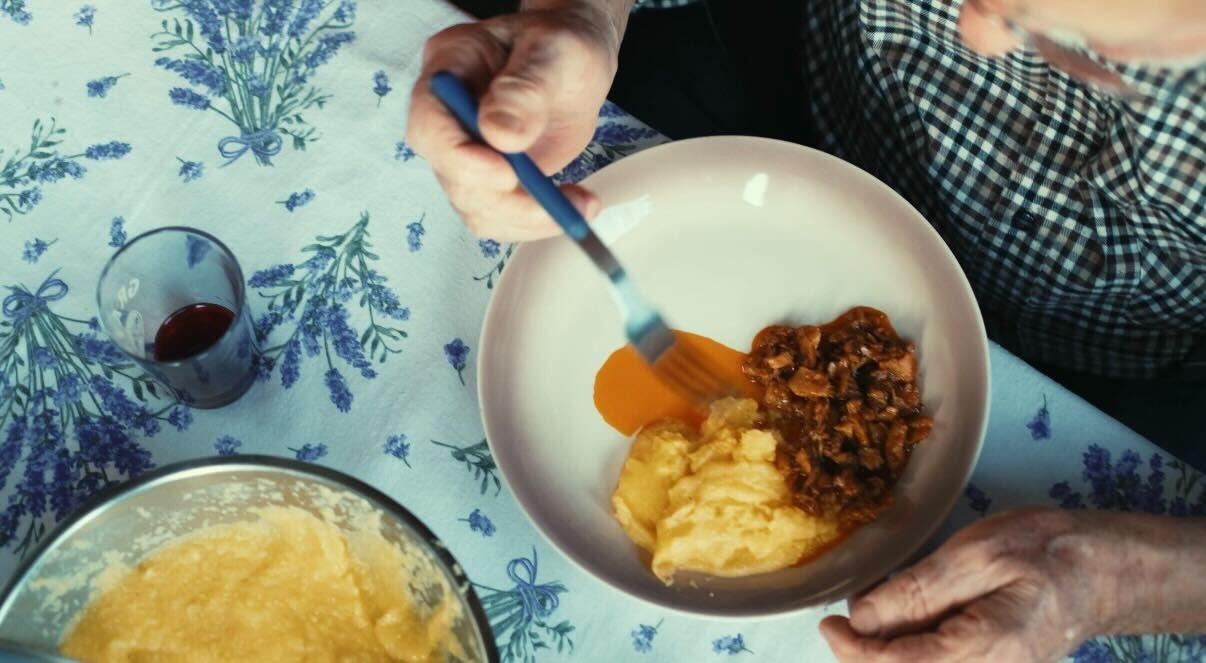
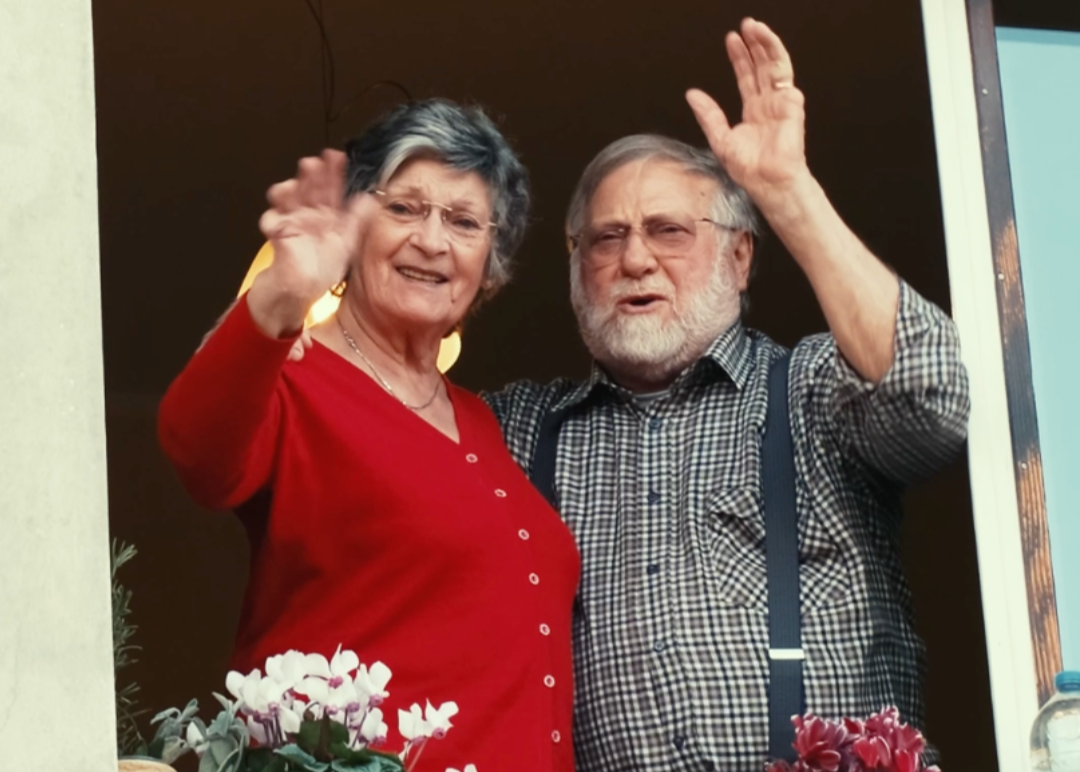
We linger well into the afternoon, taking our time, savoring every moment of a meal that is much more than food it’s an embrace.
Then it’s time to say goodbye, we pack up the little white Fiat and get ready to leave. Before we go, Nonno Giuliano gives us one last gift: his CD. He holds it like it’s a piece of himself and hands it to me with a proud smile.
“So that now and then, you’ll remember us.”
And as we drive away, the sun setting behind the hills and a song already playing in my mind, I realize: this journey doesn’t truly end when we return to Venice.
